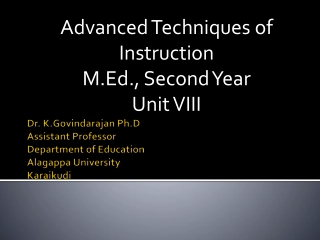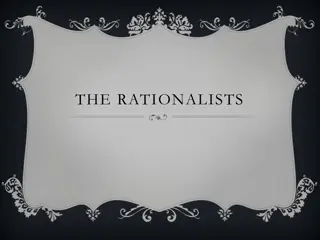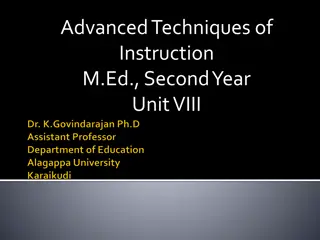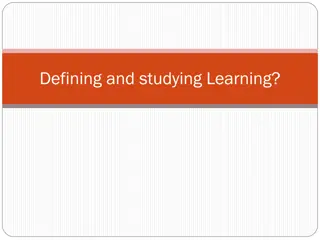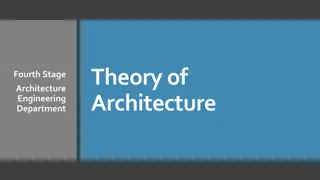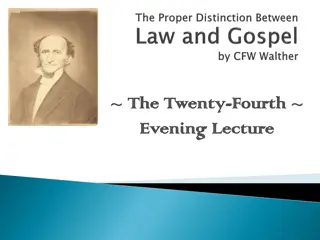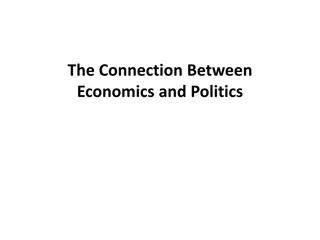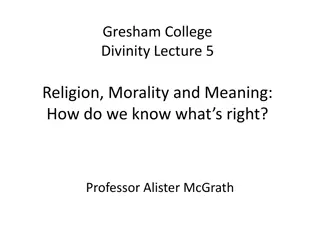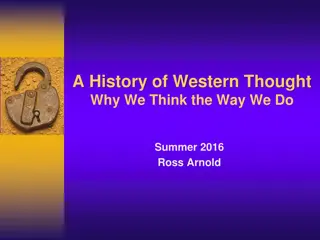Understanding Different Learning Theories and Instructional Approaches
Learning is defined as a lasting change in behavior resulting from experiences. Behaviorism, Cognitivism, and Constructivism are key theories influencing instructional design. Teachers play a crucial role in providing effective learning experiences. Empiricism and Rationalism have historically shape
2 views • 30 slides
Understanding Rationalism and Self-Made Americans in Historical Context
Rationalism is the belief in arriving at truth through reason rather than authority or intuition. Rationalists view God as a distant creator who doesn't interfere with the universe's workings. They believe in progress towards a better existence and worship by helping others. Meanwhile, self-made Ame
0 views • 9 slides
The Romantic Period in English Literature: Embracing Emotion and Individualism
The Romantic period (1798-1837) in English literature was marked by a shift towards valuing emotion, individualism, and nature over rationalism and industrialization. Influenced by societal changes, the movement included prominent poets like William Wordsworth, Samuel Taylor Coleridge, and Robert Bu
0 views • 33 slides
Understanding Learning Theories in Instructional Design
Learning is defined as enduring behavior change resulting from experiences. Behaviorism, Cognitivism, and Constructivism are key theories in instructional design. Teachers must cater to learners' needs for effective behavior changes. Empiricism and rationalism have historically influenced epistemolo
2 views • 30 slides
Explore the Scientific Revolution
The Scientific Revolution marked a shift from the medieval worldview to a secular, rational, and materialistic perspective. Key terms such as geocentric and heliocentric conceptions, Cartesian dualism, rationalism, and the scientific method played pivotal roles in shaping this transformative period.
7 views • 10 slides
The Importance of Dialogue in a Secular Society
An atheist shares insights on the importance of dialogue during a Christian camp event in 2015. The images and quotes highlight the value of rationalism, skepticism, and freethinking, emphasizing the need for evidence-based beliefs and intellectual humility amidst uncertainty. The content encourages
1 views • 17 slides
Understanding Learning: Definitions, Theories, and Approaches
Learning is defined as the process of acquiring knowledge and behavior through experience or study, resulting in a relatively permanent change. This includes discussions on behavioral potentiality, instincts, cognitive aspects, and different types of learning such as classical conditioning and cogni
0 views • 33 slides
Rationalism vs. Empiricism in Philosophy: A Comparative Exploration
Rationalism and empiricism are contrasting philosophical theories regarding the sources of knowledge. Rationalists emphasize reason and deductive logic, asserting that certain principles are inherently true, while empiricists argue that knowledge primarily comes from sensory experience and observati
0 views • 10 slides
Insights on Faith and Contrition from Walther's Teachings
Walther emphasizes the importance of contrition while highlighting that it is not the cause of something specific. He distinguishes between the desire to come to Jesus and the desire to experience contrition. The context also discusses historical aspects like Rationalism in the Protestant Church of
0 views • 20 slides
The Interplay of Economics and Politics: A Comprehensive Analysis
Explore the intricate relationship between economics and politics, delving into the evolution of capitalism, the necessity of private property rights, challenges in establishing capitalism in certain countries, and the complex dynamics between capitalism and democracy. The discussion highlights the
0 views • 9 slides
Perspectives on Science, Morality, and Meaning in Society
Explore various viewpoints on the intersection of science, morality, and meaning in society through the perspectives of notable figures such as Albert Einstein, Sir Peter Medawar, Bertrand Russell, and Alex Rosenberg. Contemplate the implications of scientific knowledge, the limitations of rationali
0 views • 19 slides
Evolution of Western Philosophical Thought: From Idealism to Humanism
Explore the rich history of Western philosophical thought from the idealism of Plato to the humanism of Whitehead. Trace the progression of thought, including materialism, rationalism, skepticism, and relativism, as key thinkers like Descartes, Kant, Marx, and others shaped our understanding of real
0 views • 16 slides
